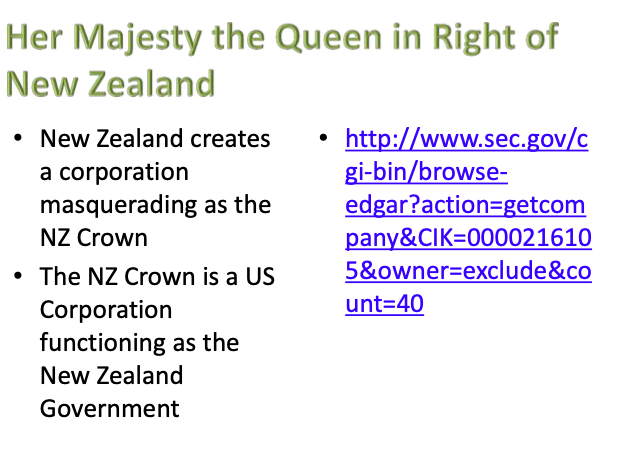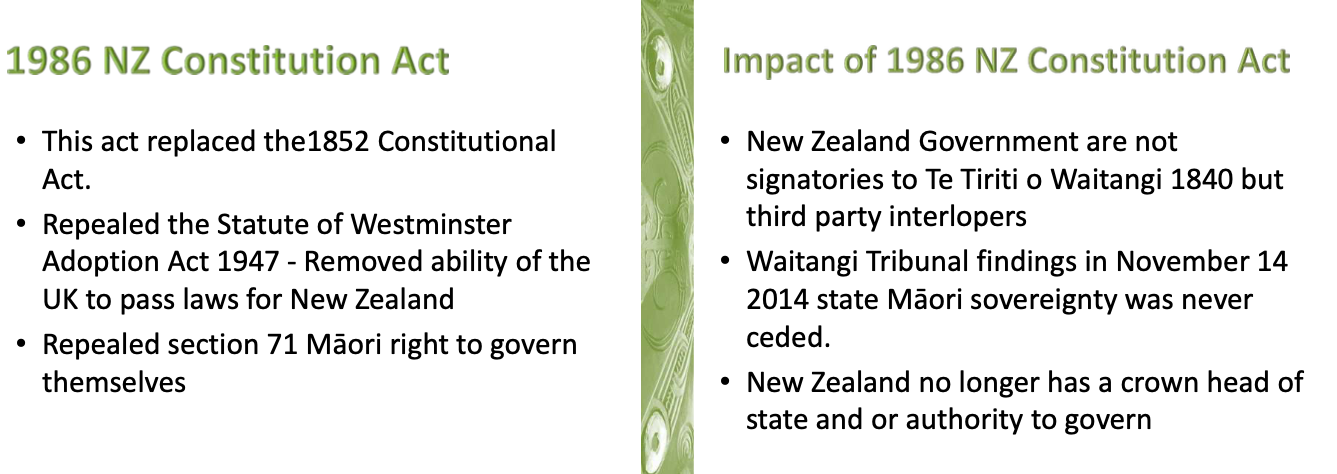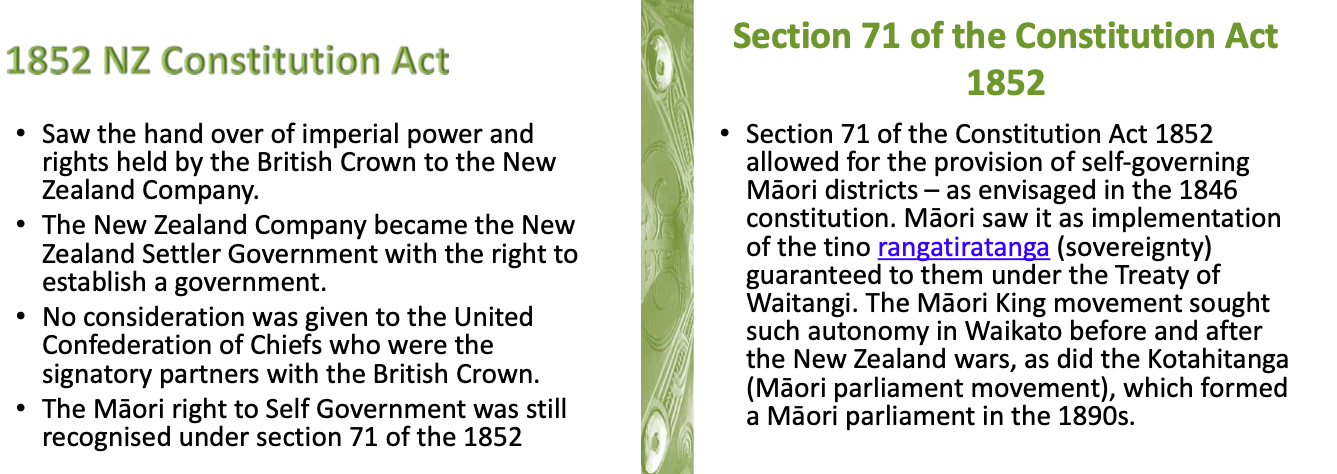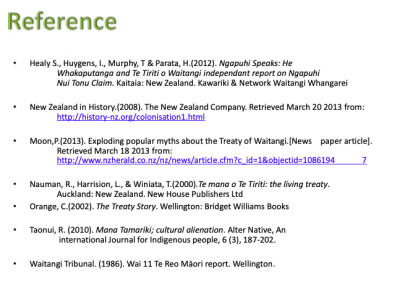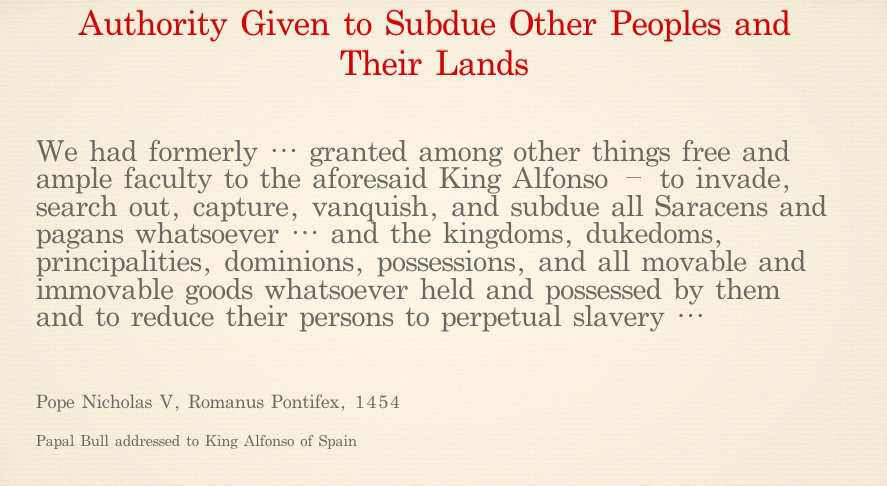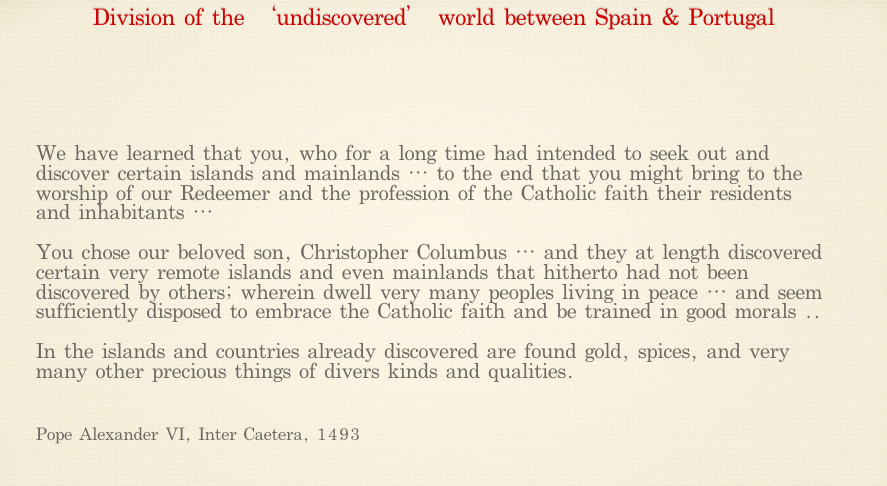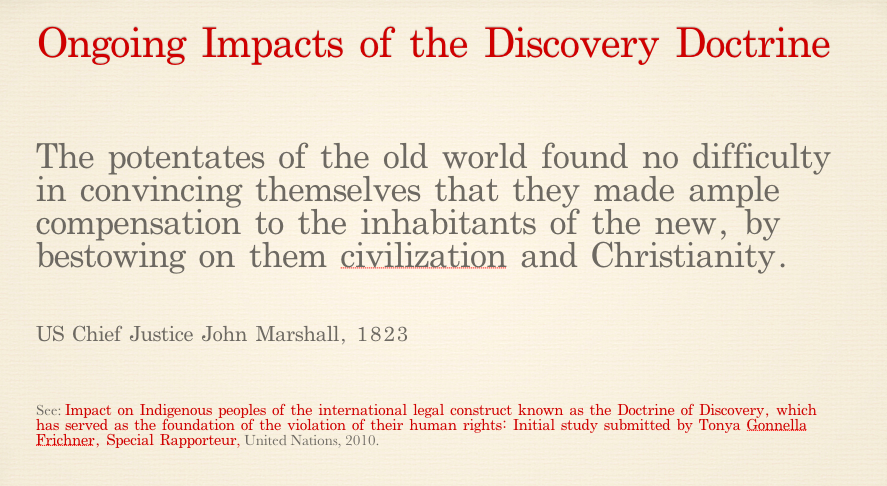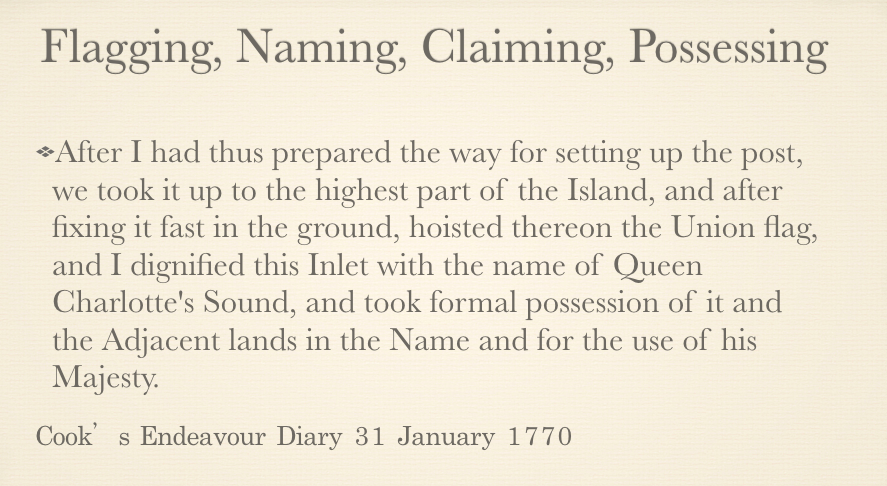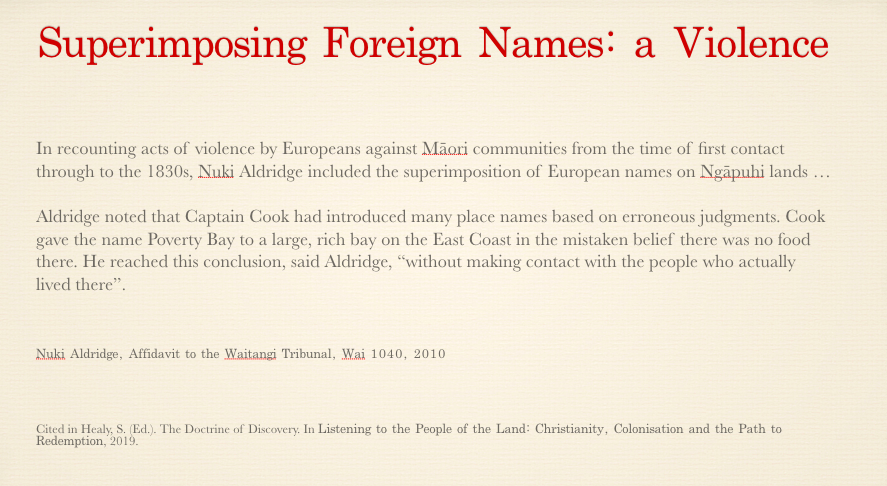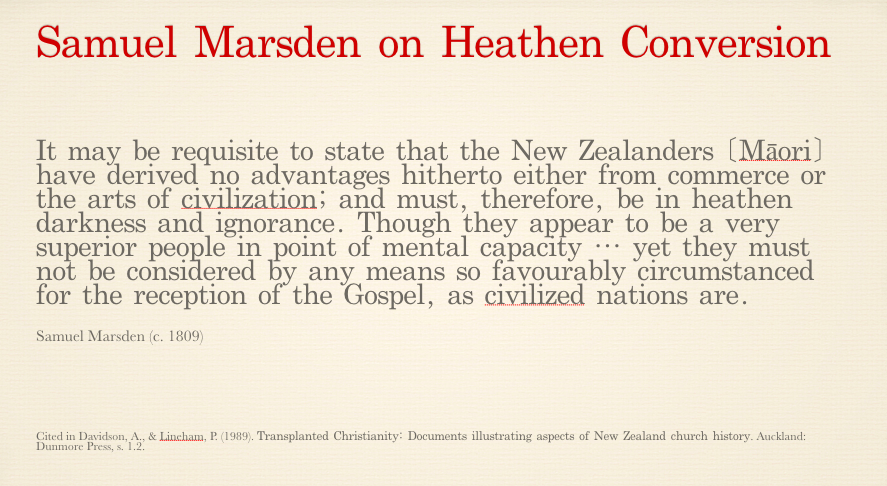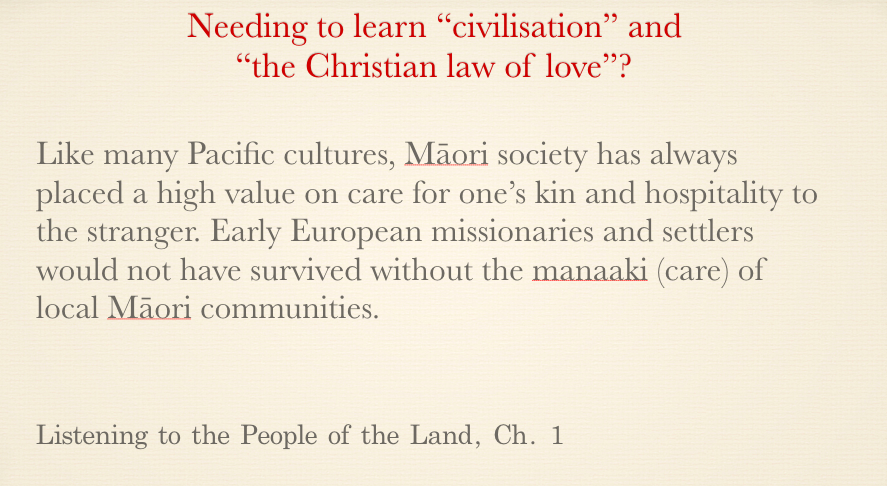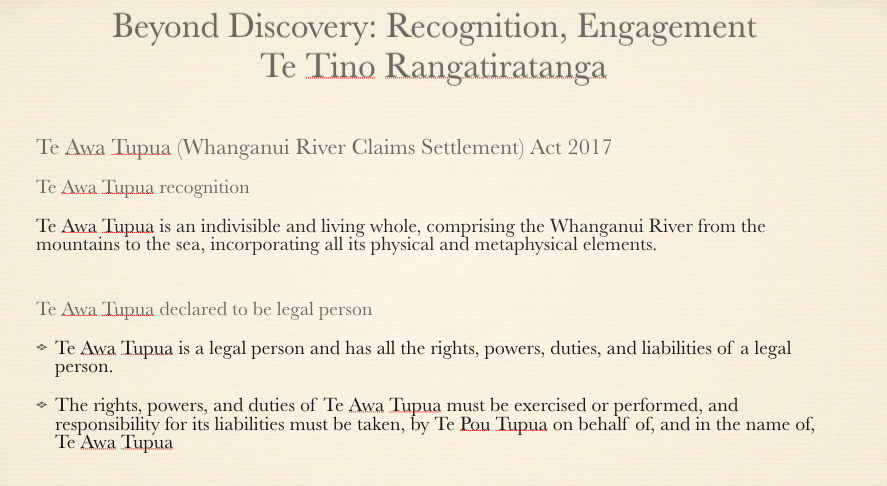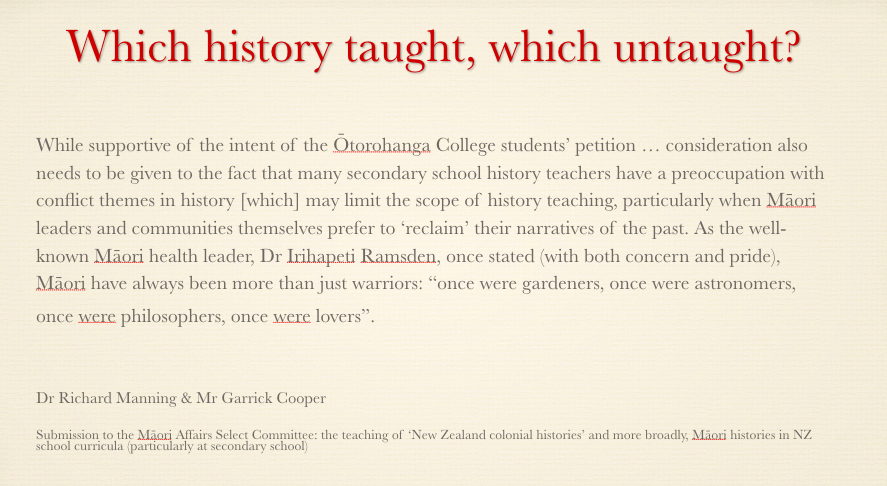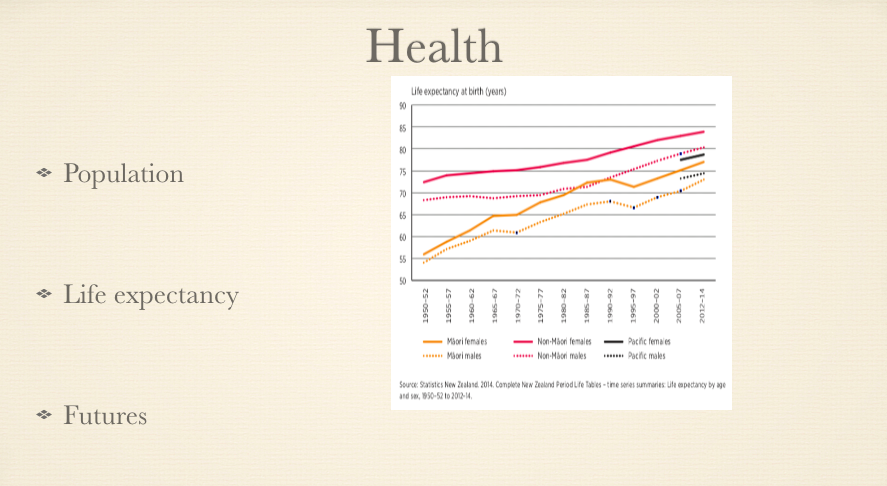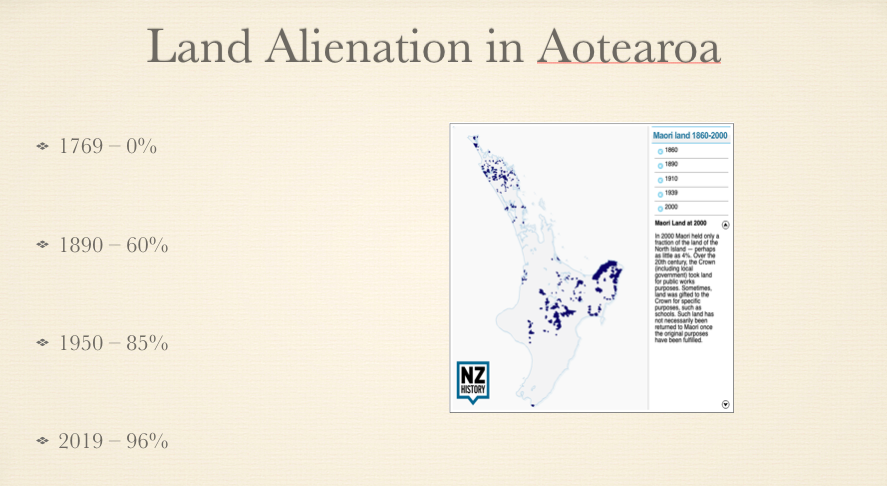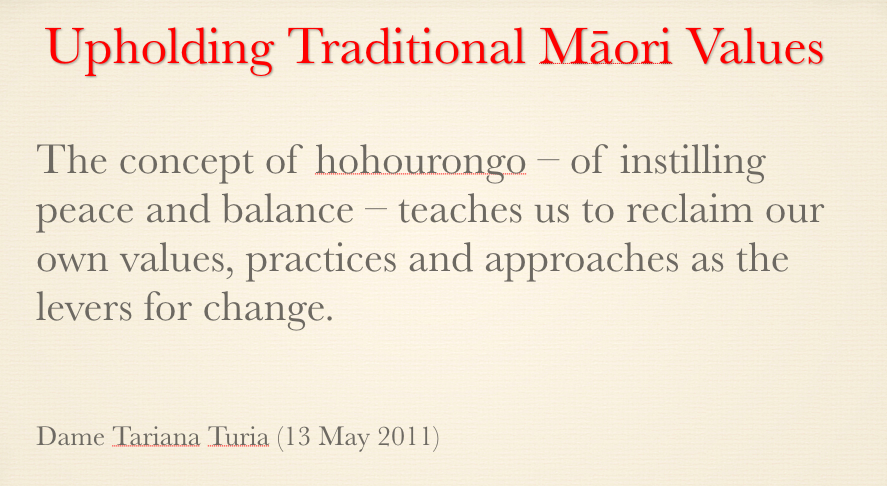10 History 1
Section outline
-
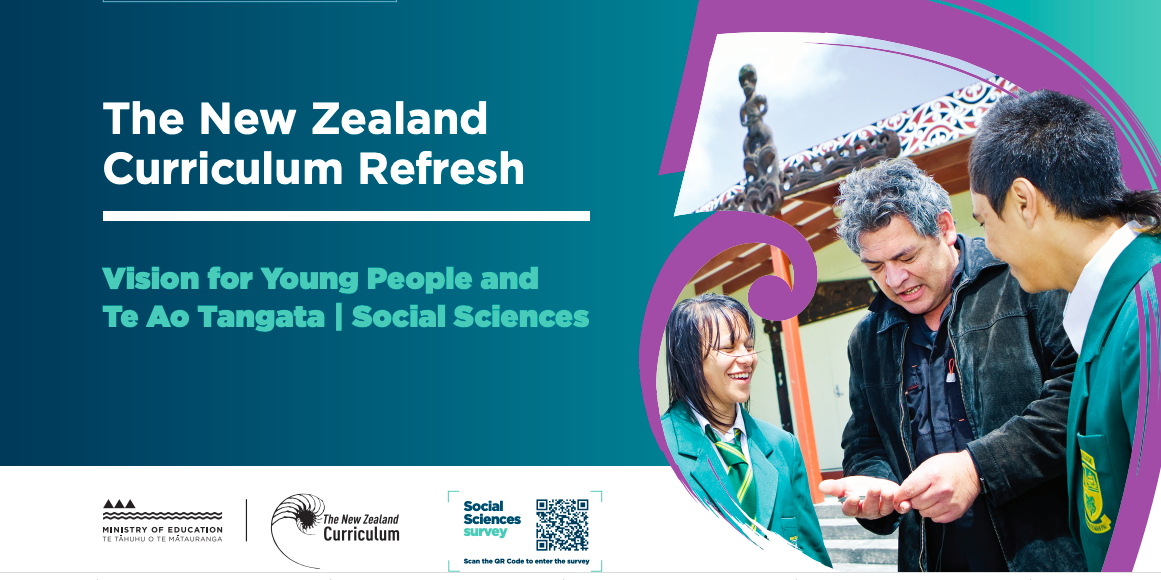
Ngā hiahia titiro ki te tiimatatanga, ā, ka kite māramatanga ai tātou te mutunga e.
E tekau tau: ka kimi te whakapapa o te hītori o te motu nei/Year 10: The histories of Te Ika-a-Maui and Te-Waka-a-Maui/Aotearoa-New Zealand

Āta whakaaro mō te wā katoa/The Big Idea to reflect on over the span of this course:
What are the key concepts, contexts, and ways of understanding/interpreting the world must I focus on, if I am to succeed within the new evolution of the NCEA curriculum?
(which begins in schools from next year - across all subjects). Basically, the transition throughout this year in History class is one where we must strive to grasp for things that are outside of our grasp; because the curriculum does not care if you've been taught/learnt this stuff by next year - it will still requiree the standard it sets regardless.
Fortunately for you, your history teacher is the great great great grandson of a chief who signed the Treaty; therefore, I have somewhat uniquely well-informed ideas about Te tiriti o Waitangi, this is because it holds my name n the contract - it is unlikely, yet not impossible that your next history teacher will have this privileged access to aspects of the exact histories you require remedial style attention towards, if you plan on becoming a working professional one day.
We are also connecting with the social studies curriculum - the relevant Achievement objectives are beloe.
That said, learning is a team sport, if you fail bring curiosity and enthusiasm to class, it is not my role to convince you learning is a good idea - I am here to help those who are here to grow into a successful and happy person.
-
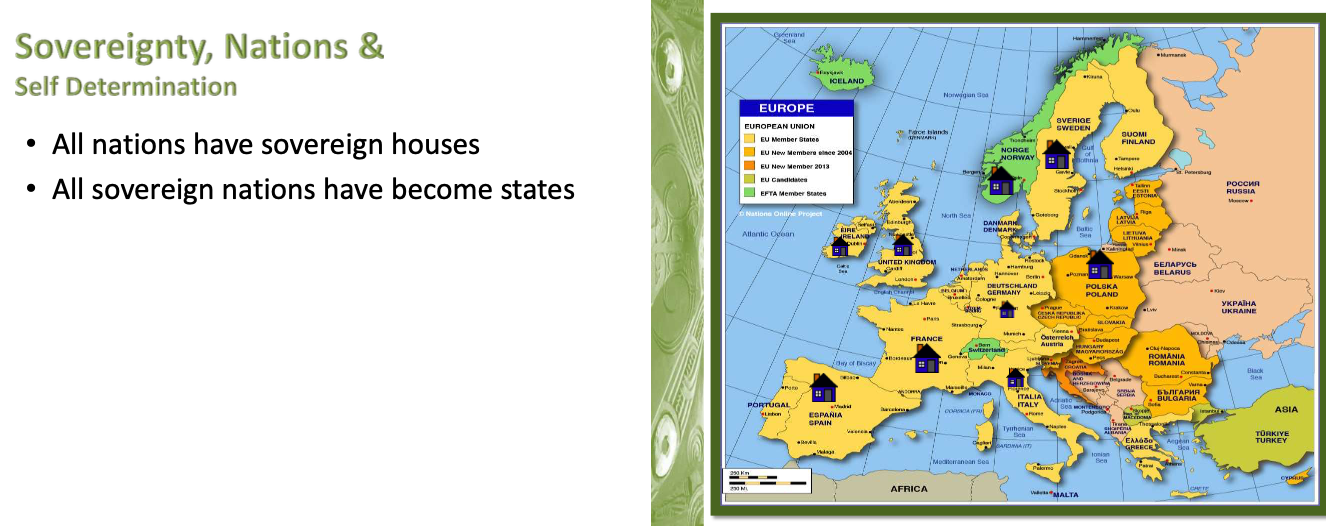
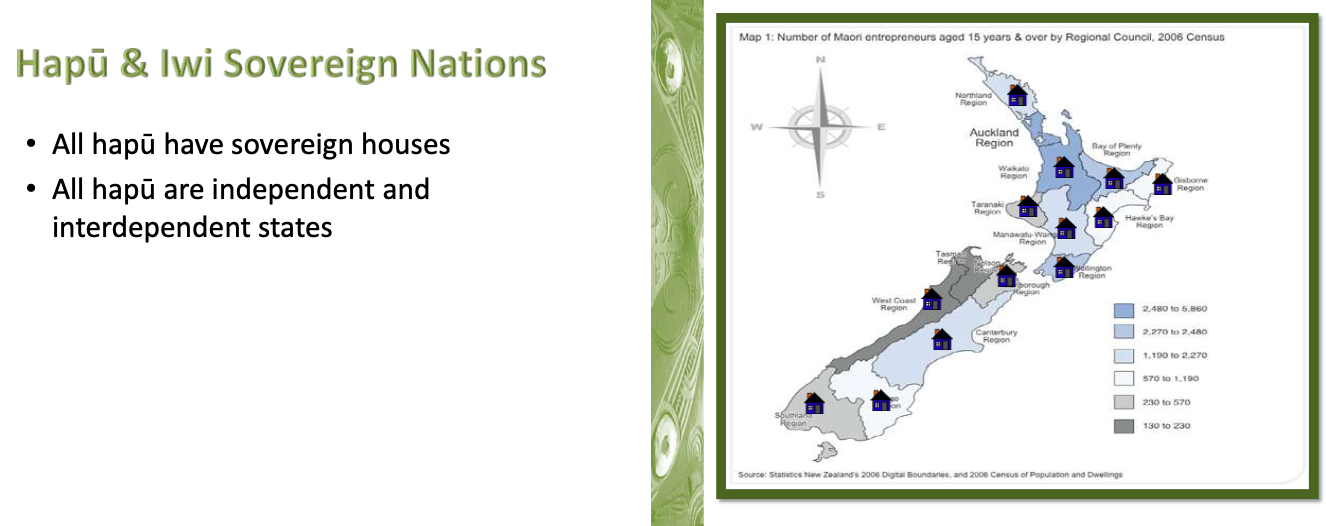
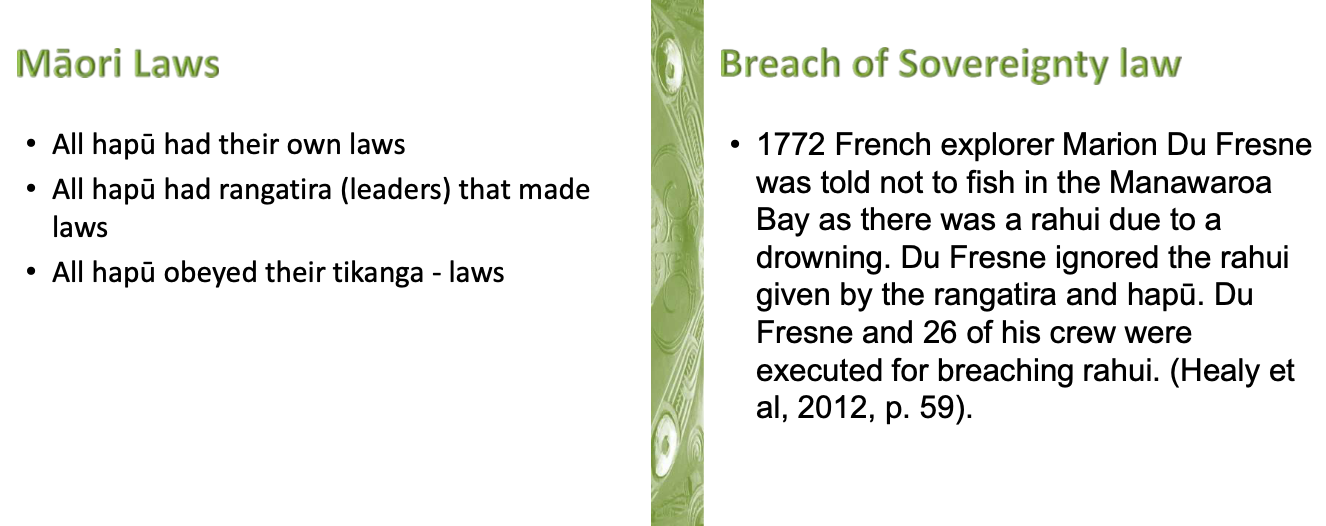
Introduction to History
Students will be taken through a series of introductory lessons in which they will learn about the different historical skills to be developed throughout the year.
- How to conduct effective research
- How to select primary and secondary sources
- How to annotate sources.
-
Students will
- work in groups to conduct research, which may include:
- finding primary and secondary sources on the history of The Doctrine of Discovery prior to 1840.
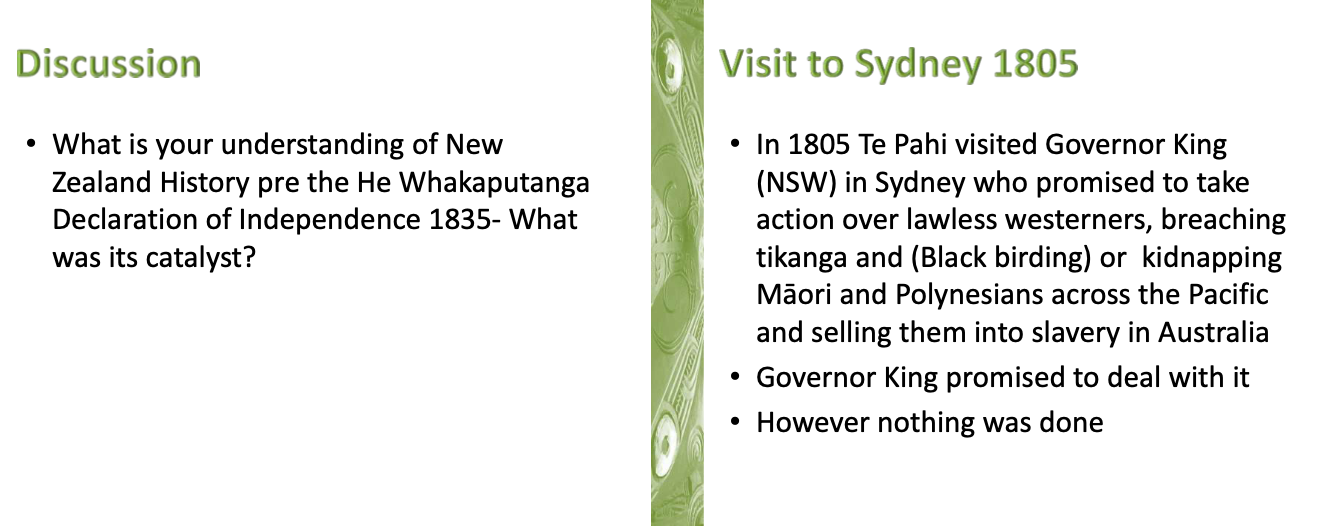
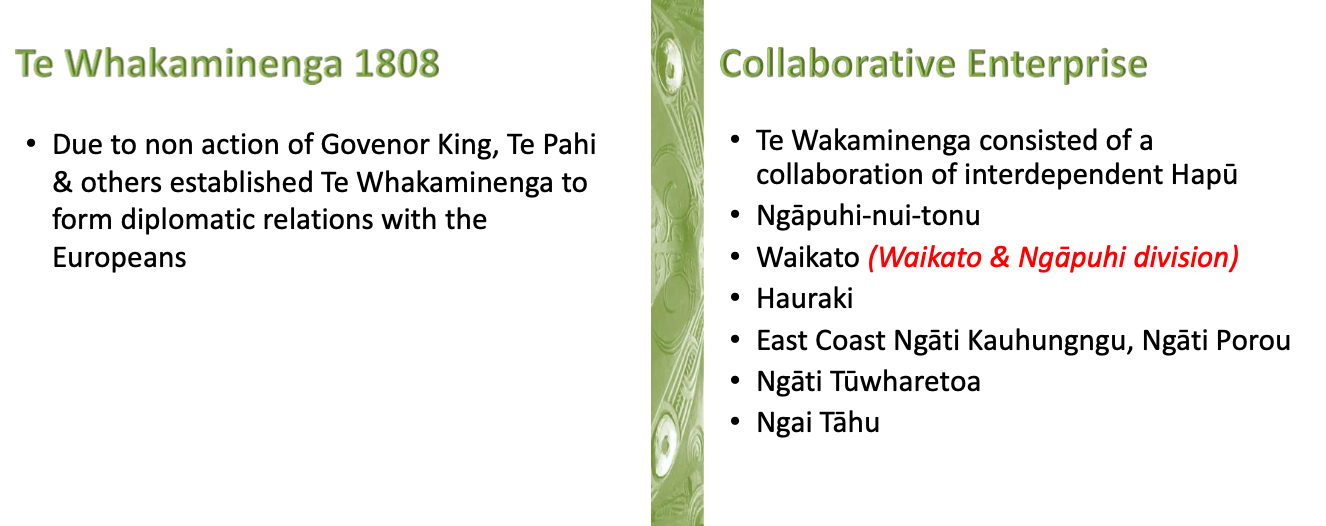
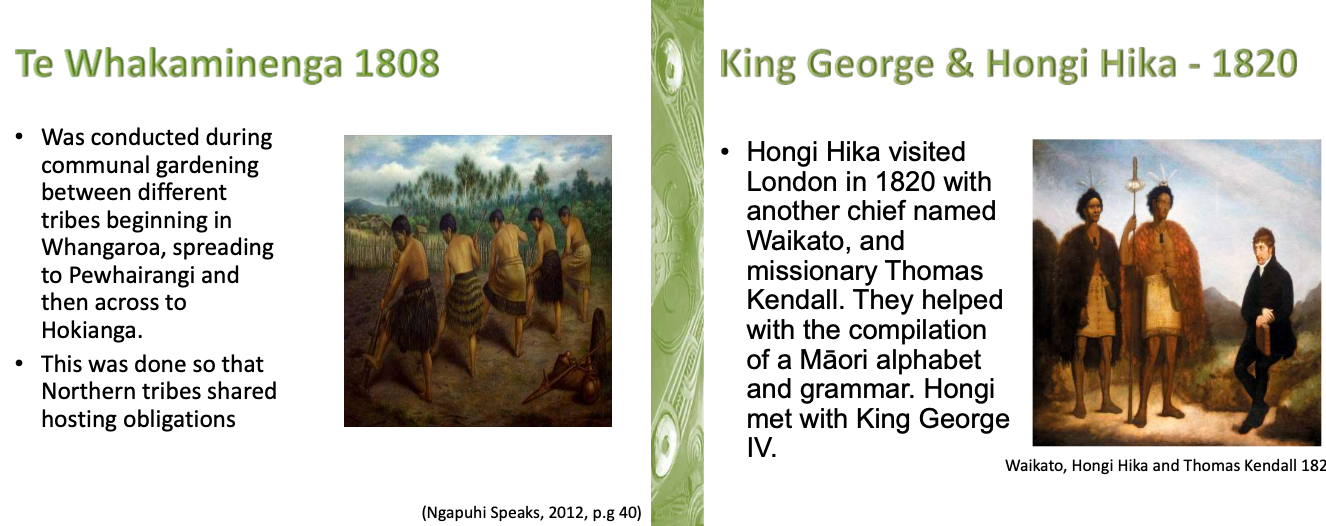
-
carry over from above
-
Engage with a variety of perspectives on a historical event or place.
Explore the ways that power has been exercised in the past, including the diverse experiences and effects of power.
Explore how people’s understanding of and engagement with whakapapa and whanaungatanga has shaped their responses to the challenge of interculutral communication; and, also shapes our interpretation of those responses.
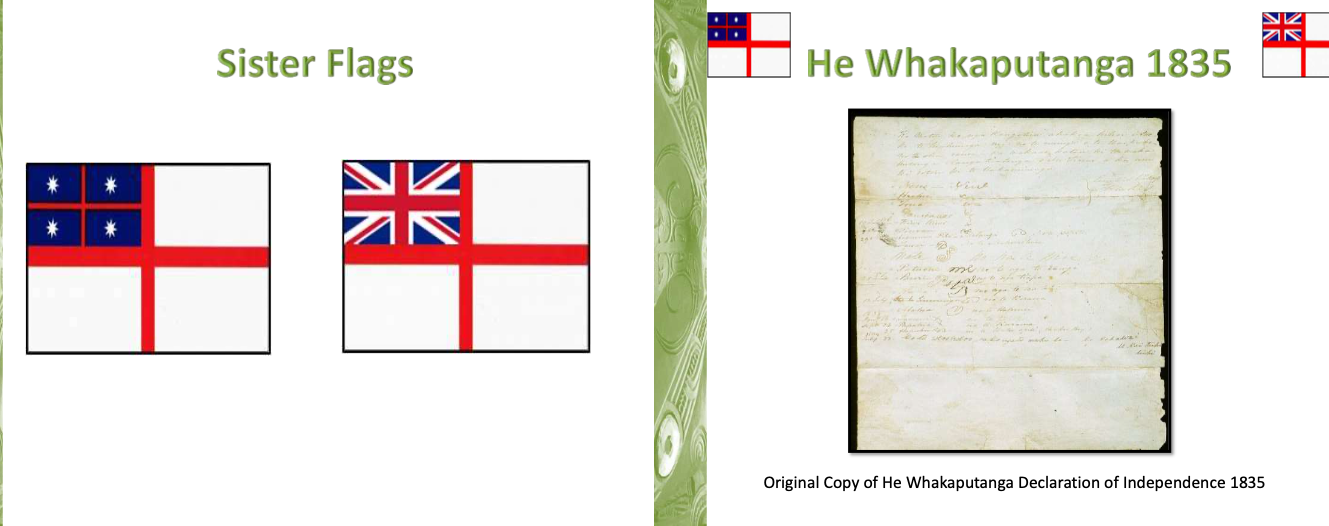


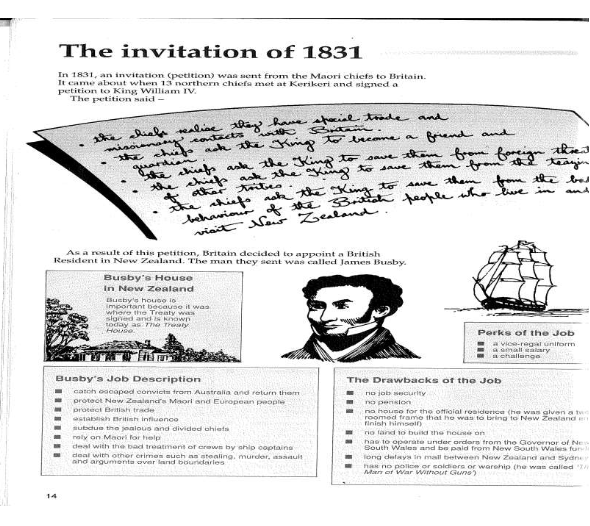
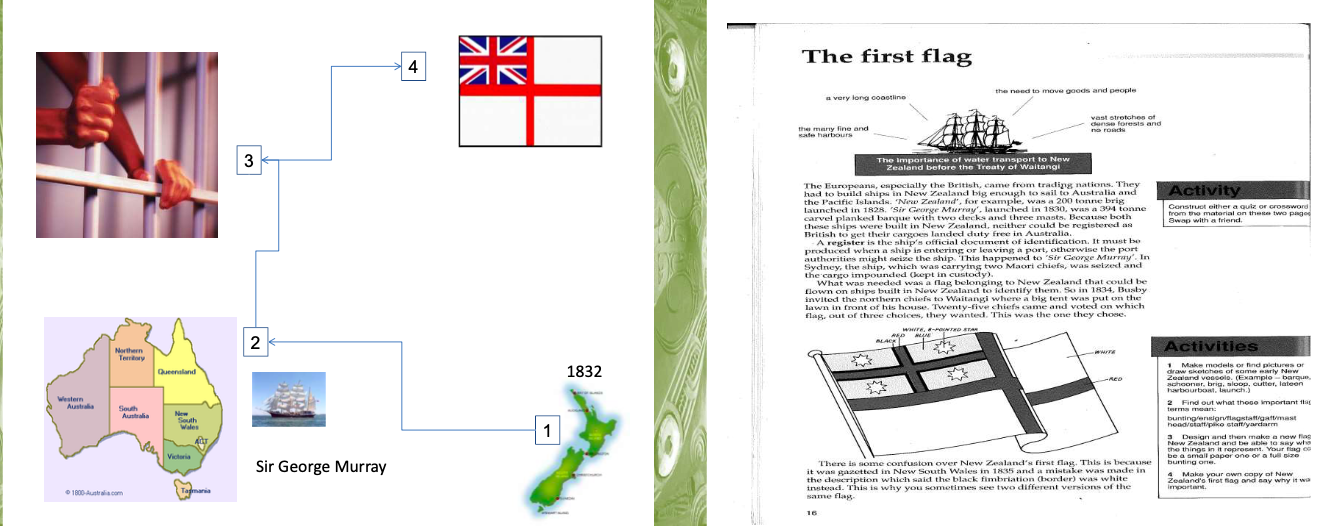
-
carry over from last week
-
carry over from last week
-
Describe how people determine the significance of historical events and places
Explore how shared identities have been shaped and have contributed to social cohesion and conflict.
Develop a historical narrative using historical concepts and selected evidence.
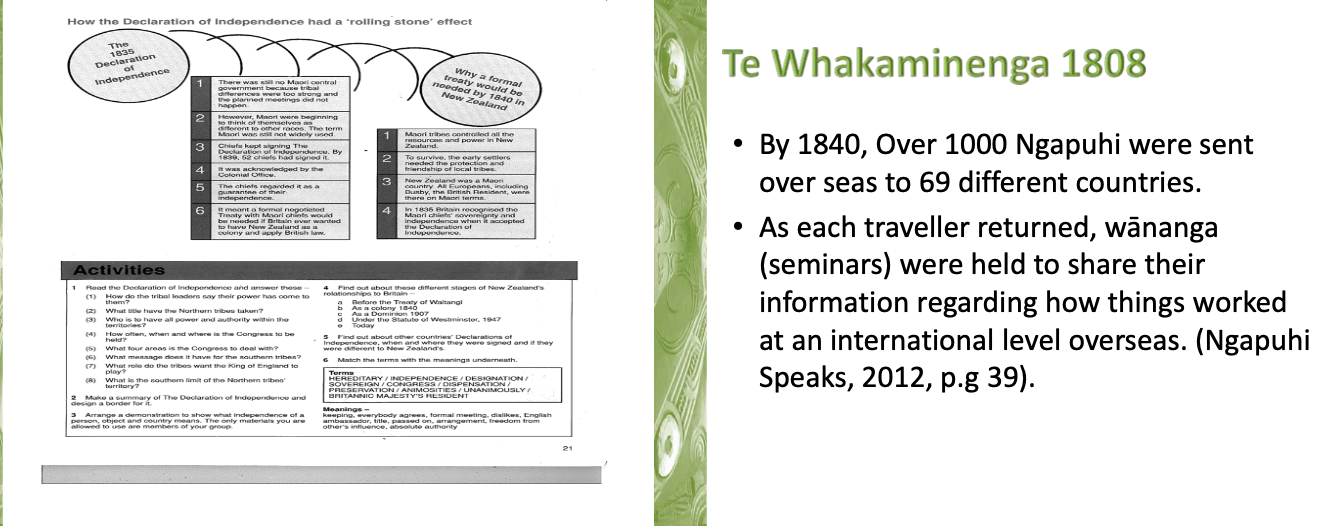
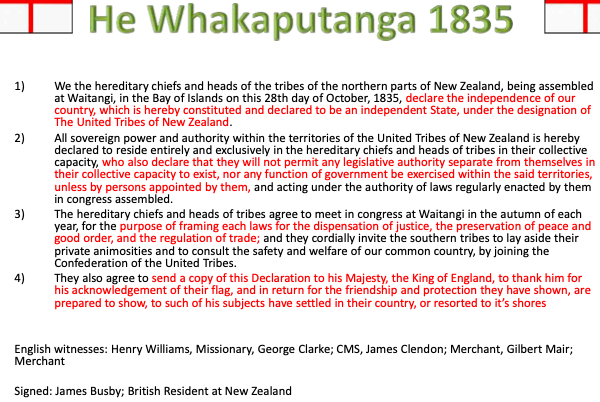
-
-
Explore how people’s understanding of and engagement with whakapapa, whanaungatanga, and tūrangawaewae have shaped the past.
Explore how people’s understandings of and engagement with mana have shaped the past.
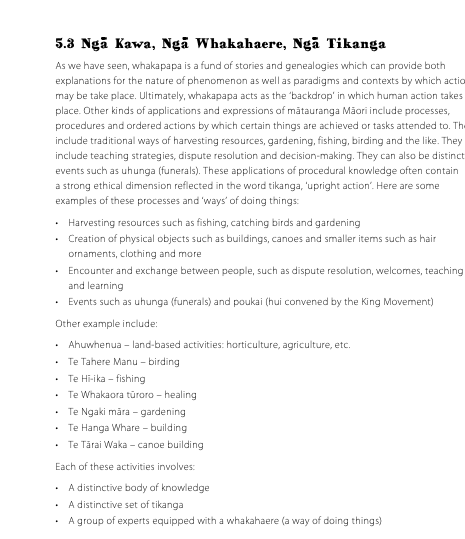
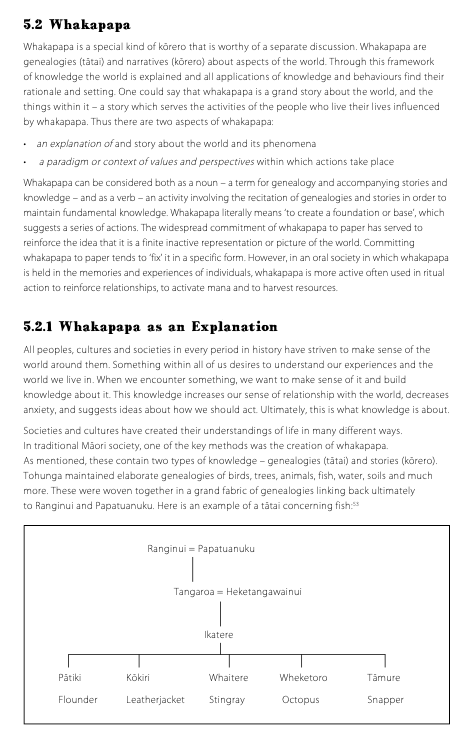
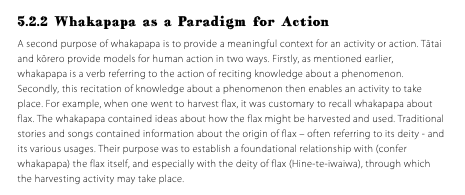
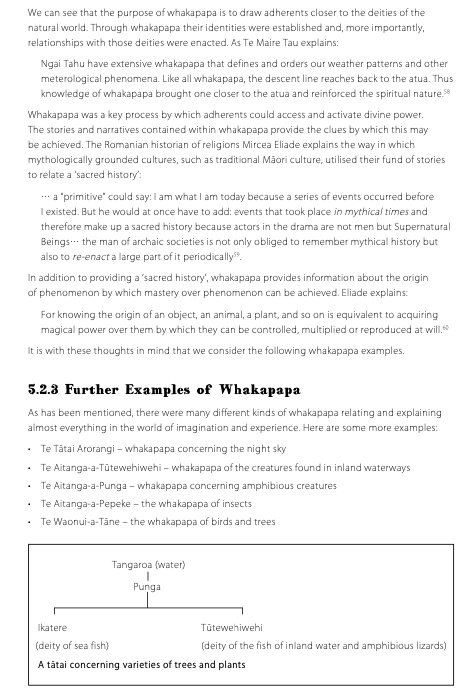
-
EXPLORE / TŪHURA learning intentions:
- We are EXPLORING the modern history of economic systems and how they have evolved over time.
- We are EXPLORING the continuities and changes that have taken place in the economy we have presently.
- We are EXPLORING the relationship between war and the economy so we can conceptualise how they are connected.
FOCUS / ARONGA learning intentions:
- We are FOCUSING on how the history of economic theory and practice have evolved over time so we can describe and explain the origins of our present economic system.
- Tēnā tātou, nau mai hoki mai ki te rangahau o ngā hiitori o te ao.
Success Criteria:
Identify and describe the 3 primary values of early capitalism [circa 1800 - 1900)
make connections between the origins of capitalism and the histories of colonisation.
begin building your vocabulary by surveying the "Key concepts part 1" document on google classroom.
Activities:
- introduction to the ends of our inquiry (2008 financial crash).
- EdPerfect - history of the Industrial revolution
- introduction to capitalism edpuzzle.
Further Learning:
see me for extension work - of which there is plenty - but, it is in physical books/journals I own, so cannot be delivered online.
-
EXPLORE / TŪHURA learning intentions:
- We are EXPLORING the modern history of economic systems and how they have evolved over time.
- We are EXPLORING the continuities and changes that have taken place in the economy we have presently.
- We are EXPLORING the relationship between war and the economy so we can conceptualise how they are connected.
FOCUS / ARONGA learning intentions:
- We are FOCUSING on how the history of economic theory and practice have evolved over time so we can describe and explain the origins of our present economic system.
Success Criteria:
Analyse the 3 primary values of early capitalism [circa 1800 - 1900)
make connections between early capitalism and liberalism
identify the distinction between liberalism and neoliberalism
keep building your vocabulary by surveying the "Key concepts part 1" document on google classroom.
Activities:
tba
Further Learning:
see me for extension work - of which there is plenty - but, it is in physical books/journals I own, so cannot be delivered online.
-
EXPLORE / TŪHURA learning intentions:
- We are EXPLORING the modern history of economic systems and how they have evolved over time.
- We are EXPLORING the continuities and changes that have taken place in the economy we have presently.
- We are EXPLORING the relationship between war and the economy so we can conceptualise how they are connected.
FOCUS / ARONGA learning intentions:
- We are FOCUSING on how the history of economic theory and practice have evolved over time so we can describe and explain the origins of our present economic system.
Kia ora...
Success Criteria:
Understanding the historical context of capitalism
Activities:
- Video investigation + quiz
-
EXPLORE / TŪHURA learning intentions:
- We are EXPLORING the modern history of economic systems and how they have evolved over time.
- We are EXPLORING the continuities and changes that have taken place in the economy we have presently.
- We are EXPLORING the relationship between war and the economy so we can conceptualise how they are connected.
FOCUS / ARONGA learning intentions:
- We are FOCUSING on how the history of economic theory and practice have evolved over time so we can describe and explain the origins of our present economic system.
Kia ora...
Success Criteria:
Understanding how the industrial revolution and the Enlightenment period combined to form the politics of liberalism and the economics of capitalism
Activities:
- see google classroom
-
Kia ora...
Success Criteria:
Completing our Summary of learning in preparation for case study
Activities:
- Summary of learning
Further Learning:
see google classroom..REFLECT / WHAIWHAKAARO learning intentions:
- We are REFLECTING...
-
REFLECT / WHAIWHAKAARO learning intentions:
- We are REFLECTING...
Kia ora...
Success Criteria:
Completing our Summary of learning in preparation for case study
Activities:
- Summary of learning
Further Learning:
see google classroom.. -
Kia ora...
Success Criteria:
to develop a picture of the social conditions that are relevant to the community at Parihaka
Activities:
- Introduction to Parihaka
Further Learning:
see google classroom.PLAN & DO / WHAKAMAHI learning intentions:
- We are PLANNING... so that we can...
REFLECT / WHAIWHAKAARO learning intentions:
- We are REFLECTING...
-
PLAN & DO / WHAKAMAHI learning intentions:
- We are PLANNING... so that we can...
REFLECT / WHAIWHAKAARO learning intentions:
See google classroom
- We are REFLECTING...
-
PLAN & DO / WHAKAMAHI learning intentions:
- We are PLANNING to apply our learning to our present-day state of affairs, so that we can innovate and share ideas for how we might construct a just economic system in the future.
Kia ora...
Success Criteria:
Understanding the causes of the Taranaki invasion in 1860/61
Activities:
- Research round: Parihaka - social contexf parts 1 & 2
Further Learning:
see google classroom documentaries -
Kia ora tātou,
This term is going to focus on preparing you for the Aotearoa Histories Curriculum [see belowtimeline].
So,
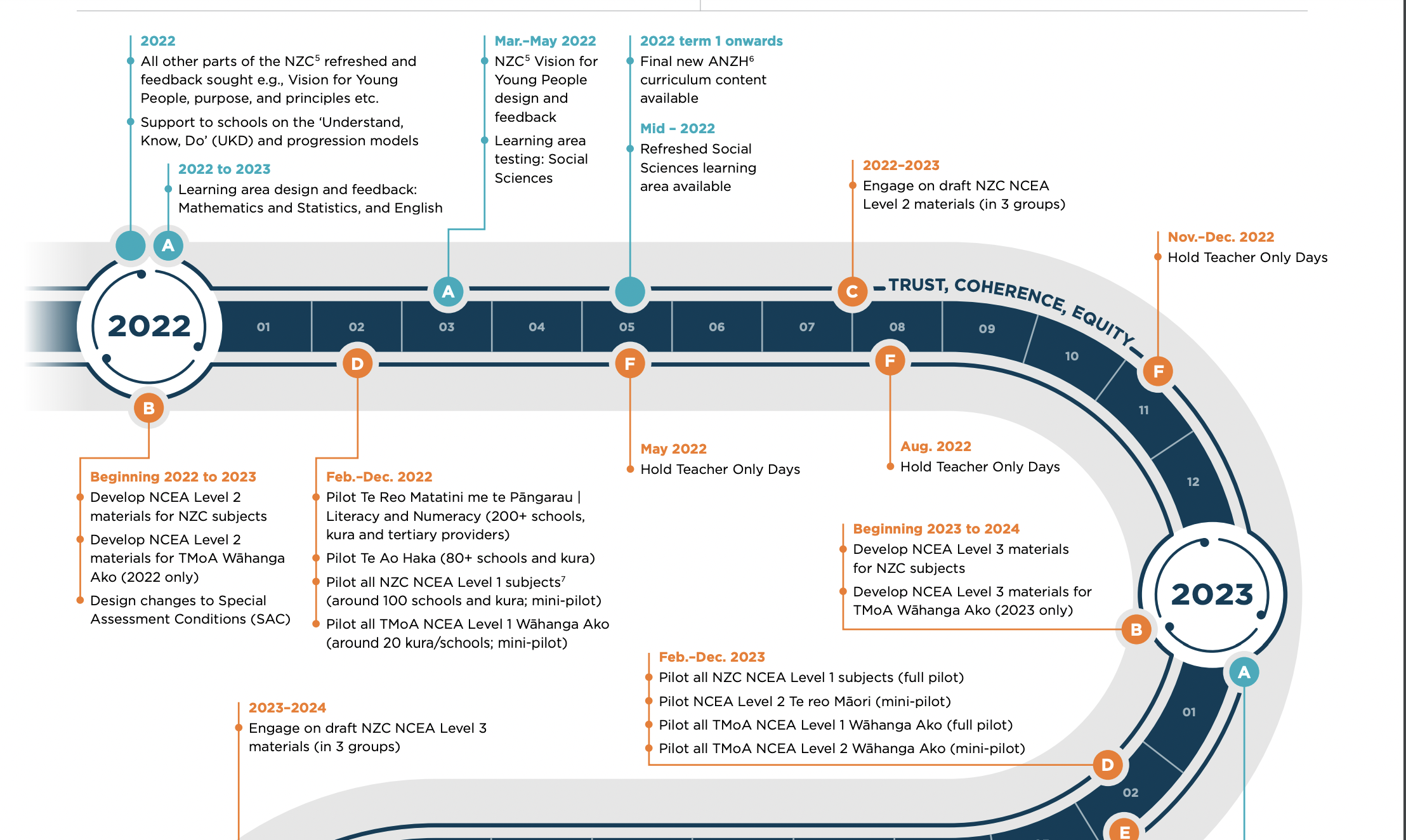
Given that you will likely be following this pathway as a course of study it is important to understand the contextual differences that emerge in our historiography in Aotearoa-New Zealand and the ethical considerations this raises for you as both learners and researchers.
Firstly, considering the increasing importance of Te Tiriti o Waitangi in the research space [for an example of this: http://www.rauikamangai.co.nz/wp-content/uploads/2022/06/Wai262-Report-Rauika-Ma%CC%84ngai.pdf ] And, in addition considering the context of learning you are in currently, possibly the best use of our time would be to explore some commonly studied 'histories' in NZ and introducing you to a te ao Māori reading of those entanglements.
My reasons for this are as follows:
1. To become a successful research scholar in NZ it is critical to understand social/historical issues from a bicultural lens.
2. There is a lack of general understanding about Māori views on the conflicts in our history.
3. As a educator in this area I have the added features of both being a descendant of people on both sides of some of these conflicts; and, I am also a direct descendant of a Treaty signatory. Therefore, I have both the education and whakapapa necessary to provide you with a 'Māori' viewpoint of some of our nations histories.
Success Criteria:
To understand the key distinctions between how some/many Māori have viewed conflicts and how these conflicts have traditionally been defined in purely Pākehā terms

Inquiries:
- The Waikato invasion - the deception at Rangiriri
- The Wairau Affray - Te Rauparaha - the great chief of Ngāti Toarangatira
Further Learning:
-
Kia ora tātou,
This term is going to focus on preparing you for the Aotearoa Histories Curriculum [see belowtimeline].
So,

Given that you will likely be following this pathway as a course of study it is important to understand the contextual differences that emerge in our historiography in Aotearoa-New Zealand and the ethical considerations this raises for you as both learners and researchers.
Firstly, considering the increasing importance of Te Tiriti o Waitangi in the research space [for an example of this: http://www.rauikamangai.co.nz/wp-content/uploads/2022/06/Wai262-Report-Rauika-Ma%CC%84ngai.pdf ] And, in addition considering the context of learning you are in currently, possibly the best use of our time would be to explore some commonly studied 'histories' in NZ and introducing you to a te ao Māori reading of those entanglements.
My reasons for this are as follows:
1. To become a successful research scholar in NZ it is critical to understand social/historical issues from a bicultural lens.
2. There is a lack of general understanding about Māori views on the conflicts in our history.
3. As a educator in this area I have the added features of both being a descendant of people on both sides of some of these conflicts; and, I am also a direct descendant of a Treaty signatory. Therefore, I have both the education and whakapapa necessary to provide you with a 'Māori' viewpoint of some of our nations histories.
Success Criteria:
To understand the key distinctions between how some/many Māori have viewed conflicts and how these conflicts have traditionally been defined in purely Pākehā terms

Inquiries:
- The Waikato invasion - the deception at Rangiriri
- The Wairau Affray - Te Rauparaha - the great chief of Ngāti Toarangatira
-
Kia ora tātou,
This term is going to focus on preparing you for the Aotearoa Histories Curriculum [see belowtimeline].
So,

Given that you will likely be following this pathway as a course of study it is important to understand the contextual differences that emerge in our historiography in Aotearoa-New Zealand and the ethical considerations this raises for you as both learners and researchers.
Firstly, considering the increasing importance of Te Tiriti o Waitangi in the research space [for an example of this: http://www.rauikamangai.co.nz/wp-content/uploads/2022/06/Wai262-Report-Rauika-Ma%CC%84ngai.pdf ] And, in addition considering the context of learning you are in currently, possibly the best use of our time would be to explore some commonly studied 'histories' in NZ and introducing you to a te ao Māori reading of those entanglements.
My reasons for this are as follows:
1. To become a successful research scholar in NZ it is critical to understand social/historical issues from a bicultural lens.
2. There is a lack of general understanding about Māori views on the conflicts in our history.
3. As a educator in this area I have the added features of both being a descendant of people on both sides of some of these conflicts; and, I am also a direct descendant of a Treaty signatory. Therefore, I have both the education and whakapapa necessary to provide you with a 'Māori' viewpoint of some of our nations histories.
Success Criteria:
To understand the key distinctions between how some/many Māori have viewed conflicts and how these conflicts have traditionally been defined in purely Pākehā terms

Inquiries:
- The Waikato invasion - the deception at Rangiriri
- The Wairau Affray - Te Rauparaha - the great chief of Ngāti Toarangatira
-
Kia ora tātou, This term is going to focus on preparing you for the Aotearoa Histories Curriculum [see belowtimeline]. So, yes

Given that you will likely be following this pathway as a course of study it is important to understand the contextual differences that emerge in our historiography in Aotearoa-New Zealand and the ethical considerations this raises for you as both learners and researchers.
Firstly, considering the increasing importance of Te Tiriti o Waitangi in the research space [for an example of this: http://www.rauikamangai.co.nz/wp-content/uploads/2022/06/Wai262-Report-Rauika-Ma%CC%84ngai.pdf ] And, in addition considering the context of learning you are in currently, possibly the best use of our time would be to explore some commonly studied 'histories' in NZ and introducing you to a te ao Māori reading of those entanglements.
My reasons for this are as follows:
1. To become a successful research scholar in NZ it is critical to understand social/historical issues from a bicultural lens.
2. There is a lack of general understanding about Māori views on the conflicts in our history.
3. As a educator in this area I have the added features of both being a descendant of people on both sides of some of these conflicts; and, I am also a direct descendant of a Treaty signatory. Therefore, I have both the education and whakapapa necessary to provide you with a 'Māori' viewpoint of some of our nations histories.
Success Criteria: To understand the key distinctions between how some/many Māori have viewed conflicts and how these conflicts have traditionally been defined in purely Pākehā terms
Inquiries:
The Waikato invasion - the deception at Rangiriri
The Wairau Affray - Te Rauparaha - the great chief of Ngāti Toarangatira
-
Kia ora tātou, This term is going to focus on preparing you for the Aotearoa Histories Curriculum [see belowtimeline]. So, yes

Given that you will likely be following this pathway as a course of study it is important to understand the contextual differences that emerge in our historiography in Aotearoa-New Zealand and the ethical considerations this raises for you as both learners and researchers.
Firstly, considering the increasing importance of Te Tiriti o Waitangi in the research space [for an example of this: http://www.rauikamangai.co.nz/wp-content/uploads/2022/06/Wai262-Report-Rauika-Ma%CC%84ngai.pdf ] And, in addition considering the context of learning you are in currently, possibly the best use of our time would be to explore some commonly studied 'histories' in NZ and introducing you to a te ao Māori reading of those entanglements.
My reasons for this are as follows:
1. To become a successful research scholar in NZ it is critical to understand social/historical issues from a bicultural lens.
2. There is a lack of general understanding about Māori views on the conflicts in our history.
3. As a educator in this area I have the added features of both being a descendant of people on both sides of some of these conflicts; and, I am also a direct descendant of a Treaty signatory. Therefore, I have both the education and whakapapa necessary to provide you with a 'Māori' viewpoint of some of our nations histories.
Success Criteria: To understand the key distinctions between how some/many Māori have viewed conflicts and how these conflicts have traditionally been defined in purely Pākehā terms
Inquiries:
The Waikato invasion - the deception at Rangiriri
The Wairau Affray - Te Rauparaha - the great chief of Ngāti Toarangatira


